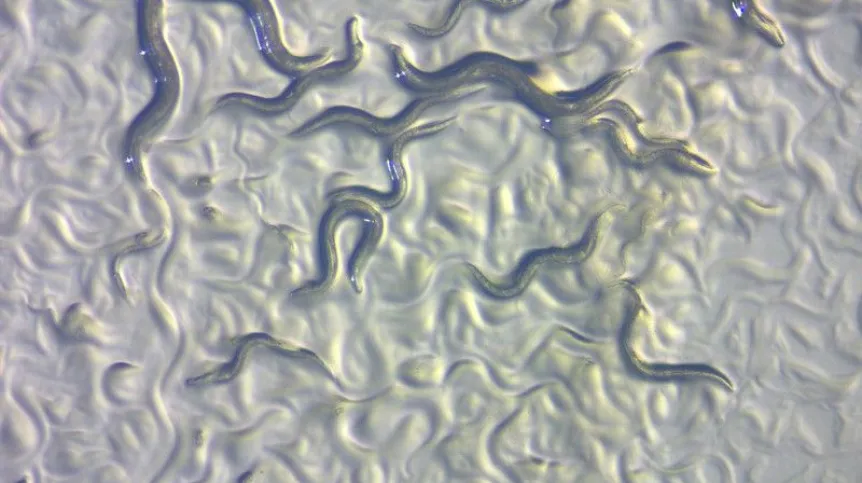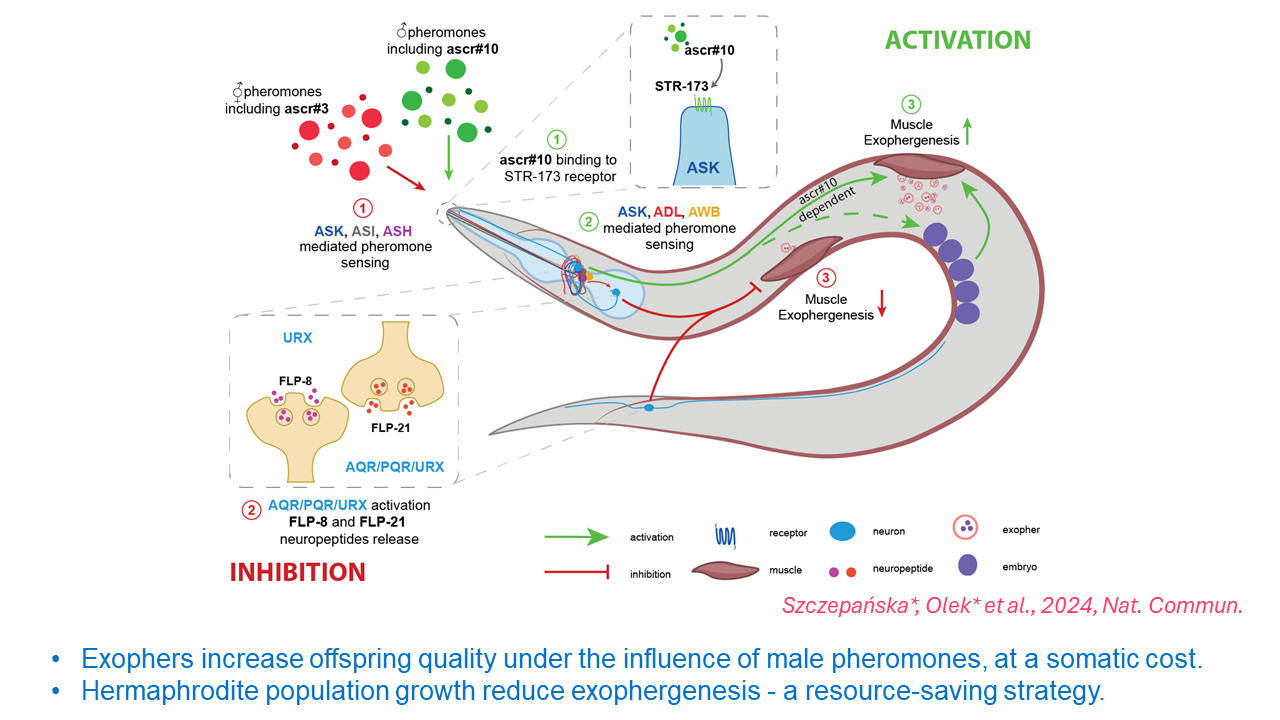
Recent research from Polish scientists sheds new light on how environmental factors and social interactions influence the production of certain vesicles - exophers - in nematode muscles. The researchers previously demonstrated the importance of exopher production in the regulation of reproduction.
Extracellular vesicles have an essential role in intercellular communication during various biological processes. A special group of such vesicles are exophers. These large, evolutionarily conserved structures have been described in nerve cells of an important model organism - the nematode Caenorhabditis elegans, as well as in mouse heart cells. It has been noticed that exophers are secreted to carry a certain cargo - damaged proteins and even entire organelles. Scientists therefore concluded that this could represent an important but still insufficiently studied metabolic waste management system.
However, something still bothered Polish researchers. In their opinion, exophers were too large for their function to be only the removal of cellular waste. And they were right. According to the paper they published a few years ago, the muscles of the nematode C. elegans produce exophers that aid reproduction by accelerating the development of offspring, and their secretion depends on sex.
The latest research conducted by Dr. Wojciech Pokrzywa's team from the International Institute of Molecular and Cell Biology in Warsaw (IIMCB) and Dr. Michał Turek from the Institute of Biochemistry and Biophysics of the Polish Academy of Sciences sheds new light on how environmental factors and social interactions influence the production of exophers. The results were published in Nature Communications.

The research provided groundbreaking results on the mechanism by which chemical signals influence the ability of muscle tissue to produce exophers. The researchers discovered that communication through specific pheromones influences the production of exophers by muscles of hermaphrodite nematodes (nematodes have hermaphroditic and male individuals). 'Under the influence of male pheromones, these muscles produce an increased amount of vesicles, which supports the development of embryos in the mother's uterus, but this is associated with a somatic cost to the mother's body', says the IIMCB press release.
Another observed effect was that a nematode population growth may result in reduced exopher production. So if the population is large enough, nematodes do not care about intensive reproduction and switch to a resource-saving strategy.
The publication in Nature Communications also describes how information about whether to produce exophers is transferred to the muscles from the nervous system that registers the presence of pheromones. The nematode C. elegans is a model organism that plays a key role in biomedical research. New drugs and therapies are tested on these organisms. It is therefore important for researchers to better understand the cellular mechanisms that determine the development of these organisms.
'This discovery opens new perspectives for understanding how environmental signals can affect the functioning of organisms at the cellular level, including humans', says Dr. Wojciech Pokrzywa from IIMCB.
PAP - Science in Poland, Ludwika Tomala
lt/ agt/ kap/
tr. RL













